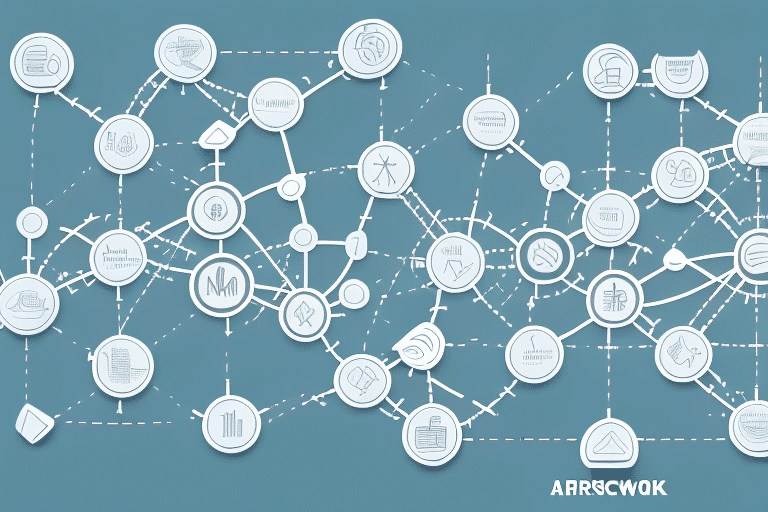Introduction to Supply Chain as a Service (SCaaS)
In today's interconnected global economy, Supply Chain as a Service (SCaaS) is emerging as a pivotal strategy for businesses aiming to enhance efficiency and reduce operational costs. SCaaS allows companies to outsource various elements of their supply chain to specialized providers, facilitating streamlined operations and greater flexibility. This comprehensive guide delves into the intricacies of SCaaS, exploring its benefits, functionalities, and its transformative impact on modern businesses.
Revolutionizing Supply Chain Management with SCaaS
What is Supply Chain as a Service?
SCaaS represents a paradigm shift in supply chain management, where businesses delegate specific supply chain functions to external experts. This includes areas such as sourcing, procurement, logistics, and order fulfillment. By leveraging the expertise of SCaaS providers, companies can achieve higher efficiency and cost-effectiveness without the burden of maintaining extensive in-house infrastructure.
Key Advantages of SCaaS
- Scalability: SCaaS offers the flexibility to scale operations up or down based on market demand, allowing businesses to remain agile.
- Cost Efficiency: Outsourcing supply chain functions reduces the need for large capital investments in infrastructure and personnel.
- Access to Advanced Technologies: SCaaS providers often utilize cutting-edge technologies and analytics tools, enhancing supply chain visibility and decision-making.
- Focus on Core Competencies: By outsourcing non-core activities, companies can concentrate on their primary business objectives and strategic initiatives.
According to a Forbes report, businesses utilizing SCaaS have seen an average cost reduction of 15-20% in their supply chain operations.
Comprehensive Overview of SCaaS Functionality
Core Components of SCaaS
- Procurement: Streamlining the sourcing of materials and negotiating with suppliers.
- Inventory Management: Optimizing stock levels to balance demand and minimize holding costs.
- Warehousing: Efficient storage solutions that ensure timely distribution.
- Order Fulfillment: Managing the processing and delivery of customer orders.
- Transportation: Coordinating the movement of goods to ensure timely and cost-effective delivery.
By integrating these components, SCaaS providers deliver a seamless and optimized supply chain experience. As highlighted in the McKinsey & Company report, digital transformation in supply chains can lead to a 30% improvement in operational efficiency.
Benefits of Implementing SCaaS in Business Operations
Enhanced Efficiency and Cost Savings
Outsourcing supply chain functions to SCaaS providers allows businesses to benefit from specialized expertise and economies of scale. This results in significant cost savings and enhanced operational efficiency. For instance, companies can reduce logistics costs by up to 25% through optimized transportation and warehousing solutions.
Improved Transparency and Decision-Making
SCaaS providers offer real-time visibility into supply chain operations through advanced analytics and reporting tools. This transparency enables businesses to make informed decisions, quickly adapt to market changes, and improve customer satisfaction. According to a Gartner study, companies with high supply chain visibility are 50% more likely to achieve their strategic goals.
SCaaS vs. Traditional Supply Chain Management
Comparative Analysis
Traditional supply chain management involves handling all aspects internally, which can be resource-intensive and less adaptable to market fluctuations. In contrast, SCaaS offers a more flexible and cost-effective approach by outsourcing specific functions to experts. This allows businesses to scale operations efficiently and respond swiftly to changing demands without significant capital expenditures.
Choosing the Right Approach
The decision between traditional supply chain management and SCaaS depends on several factors, including company size, budget, and strategic objectives. SCaaS is particularly beneficial for businesses seeking agility and cost savings, while traditional management may suit companies with unique supply chain requirements that necessitate in-house control.
Key Components of SCaaS and Their Integration
Optimizing Supply Chain Processes
Successful SCaaS implementation relies on the effective integration of its core components. Providers utilize advanced technologies such as IoT, AI, and machine learning to enhance procurement, inventory management, warehousing, order fulfillment, and transportation. This integrated approach ensures a cohesive and efficient supply chain that can adapt to dynamic market conditions.
For example, AI-powered inventory management systems can predict demand patterns, reducing the risk of overstocking or stockouts. Similarly, IoT devices in warehouses provide real-time tracking of goods, enhancing visibility and control.
Cost Savings and Efficiency Gains with SCaaS
Operational Cost Reduction
Implementing SCaaS can lead to substantial cost savings by minimizing the need for in-house infrastructure and reducing labor costs. Additionally, SCaaS providers leverage bulk purchasing and optimized logistics to lower procurement and transportation expenses.
A Bain & Company report indicates that companies adopting SCaaS can achieve up to a 20% reduction in overall supply chain costs.
Enhanced Operational Efficiency
SCaaS enhances operational efficiency by streamlining processes and eliminating redundancies. Providers employ best practices and continuous improvement methodologies to ensure optimal performance across all supply chain functions.
Furthermore, automation and advanced analytics enable faster and more accurate decision-making, leading to improved service levels and customer satisfaction.
Selecting the Right SCaaS Provider
Factors to Consider
- Industry Expertise: Ensure the provider has experience and success in your specific industry.
- Customization Capabilities: Look for providers that offer tailored solutions to meet your unique business needs.
- Technology and Tools: Assess the provider's technological capabilities, including data analytics and monitoring systems.
- Cost Structure: Evaluate the pricing models to ensure they align with your budget and provide value for money.
- Security Measures: Confirm that the provider has robust data protection and cybersecurity protocols in place.
Choosing the right SCaaS provider is crucial for maximizing the benefits and ensuring a seamless supply chain experience. According to Forrester, companies that prioritize provider expertise and technological capabilities experience higher success rates in SCaaS implementations.
Real-Life Success Stories with SCaaS
Case Studies of SCaaS Implementation
Numerous organizations across various industries have successfully implemented SCaaS, yielding significant benefits. For example, a leading electronics manufacturer partnered with an SCaaS provider to streamline its logistics and distribution processes, resulting in a 10% reduction in supply chain costs. Similarly, a major home appliance company outsourced its warehousing and fulfillment operations, cutting order-to-delivery times by 50%.
These success stories highlight the transformative potential of SCaaS in enhancing operational efficiency, reducing costs, and improving customer satisfaction.
The Future of SCaaS and Its Industry Impact
Emerging Trends and Innovations
The future of SCaaS is poised for significant growth, driven by advancements in technology and increasing demand for agile supply chain solutions. Key trends include the integration of artificial intelligence and machine learning for predictive analytics, the adoption of blockchain for enhanced transparency, and the utilization of IoT for real-time supply chain monitoring.
As evidenced by the McKinsey & Company forecast, the adoption of SCaaS is expected to increase, with businesses recognizing its value in achieving competitive advantage and operational excellence.
Potential Industry Impact
SCaaS has the potential to revolutionize the supply chain landscape by enabling greater efficiency, transparency, and adaptability. Companies that embrace SCaaS are likely to experience enhanced flexibility in their operations, better risk management, and improved ability to respond to market changes. Additionally, the emphasis on sustainability and ethical sourcing within SCaaS frameworks will promote more responsible supply chain practices.
Ultimately, SCaaS will continue to shape the future of supply chain management, offering businesses the tools and expertise needed to thrive in an increasingly complex and dynamic global market.




















